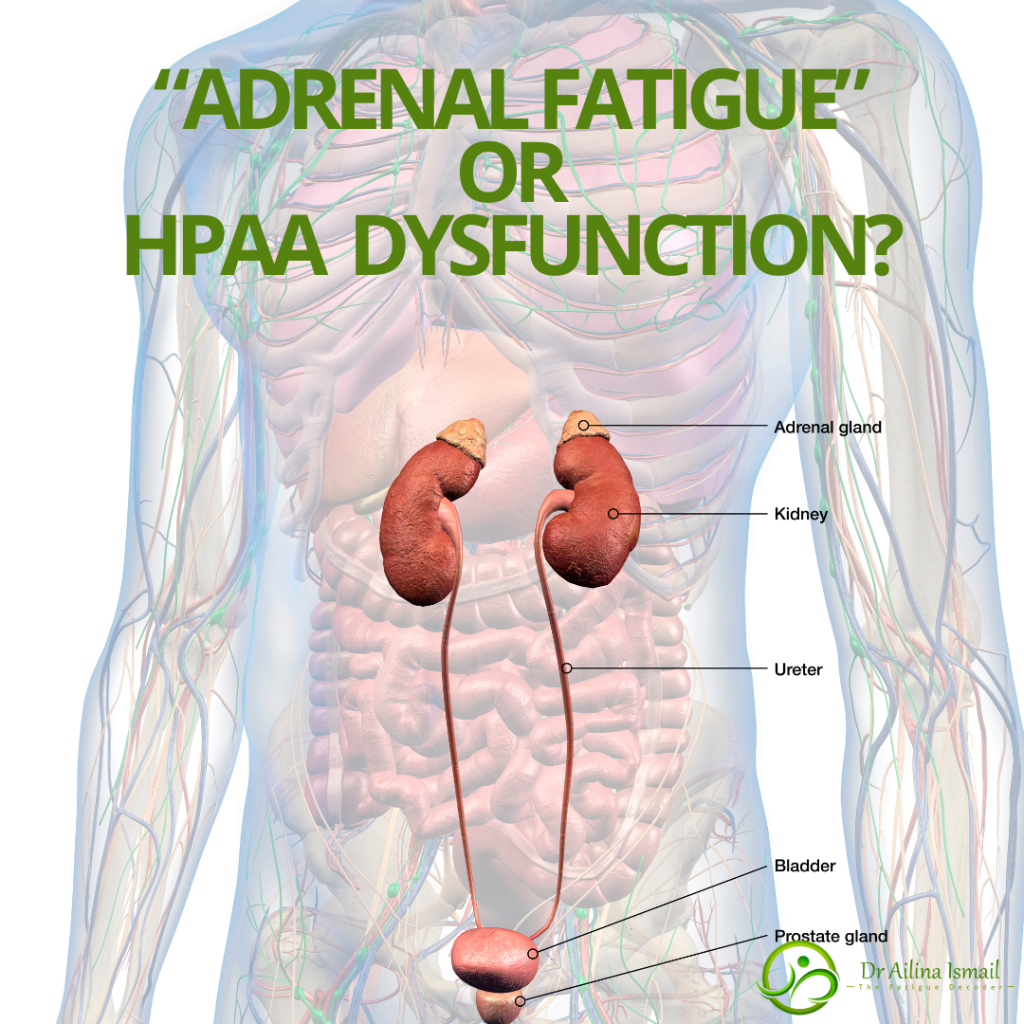
In the functional medicine world, what is often referred to as “adrenal fatigue” is better described as HPAA dysfunction—Hypothalamus-Pituitary-Adrenal Axis dysfunction. This is because the adrenals themselves are not “fatigued.” Instead, the dysfunction stems from a complex communication breakdown within the brain and endocrine system that regulates stress responses. HPAA dysfunction involves a dysregulation of the signaling between the hypothalamus, pituitary gland, and adrenal glands, leading to widespread effects on your body’s stress response, energy levels, and overall health.
By understanding the nuances of HPAA dysfunction, you can take steps to address the root causes of persistent symptoms and restore balance to your body.
Recognizing the Signs of HPAA Dysfunction
HPAA dysfunction can manifest in ways that go far beyond feeling “stressed out” or “burnt out.” Common signs include:
- Persistent Fatigue: Feeling exhausted even after adequate sleep.
- Dependence on Stimulants: Relying on coffee or energy drinks to function.
- Difficulty Handling Stress: Becoming easily overwhelmed or irritable.
- Cravings for Salt or Sugar: The body’s way of seeking quick energy or electrolyte balance.
- Brain Fog: Struggling with concentration, memory, or decision-making.
- Sleep Disruptions: Difficulty falling asleep, staying asleep, or waking refreshed.
- Mood Shifts: Experiencing anxiety, irritability, or mild depression.
- Frequent Illness: Weakened immune responses leading to more frequent infections.
If you’re experiencing several of these symptoms, it’s worth exploring the health of your HPAA system.
Root Causes of HPAA Dysfunction
HPAA dysfunction often develops as a result of ongoing stressors that disrupt the delicate balance of the stress response system. These stressors may include:
- Chronic Stress: Long-term emotional or physical stress from work, caregiving, or financial pressures.
- Poor Sleep Hygiene: Irregular schedules or insufficient rest.
- Nutritional Deficiencies: Lacking essential nutrients like magnesium, vitamin C, and B vitamins.
- Over-Exercising: Engaging in intense physical activity without proper recovery.
- Unresolved Emotional Trauma: Past or ongoing trauma can continuously strain the nervous system.
How Functional Medicine Views HPAA Dysfunction
Functional medicine treats HPAA dysfunction as a systemic issue, not just a problem with the adrenal glands. The aim is to uncover the underlying causes by evaluating the entire stress-response system and addressing disruptions at their source. This approach offers a more comprehensive path to recovery.
Finding Solutions for HPAA Dysfunction
Restoring balance to the HPAA system involves a holistic approach that incorporates lifestyle changes, nutritional support, and stress management. Here are key strategies:
- Prioritize Rest and Sleep
- Aim for 7-9 hours of uninterrupted sleep per night.
- Create a calming bedtime routine to signal to your body that it’s time to rest.
- Support Your Body with Nutrition
- Focus on whole, nutrient-dense foods rich in:
- Magnesium: Found in leafy greens, nuts, and seeds, it calms the nervous system.
- Vitamin C: Crucial for stress response, available in citrus fruits, bell peppers, and broccoli.
- B Vitamins: Especially B5 and B6, which support energy production and hormone balance.
- Avoid sugar and processed foods that disrupt blood sugar and stress responses.
- Focus on whole, nutrient-dense foods rich in:
- Adopt Stress-Reduction Practices
- Practice mindfulness or meditation to calm your nervous system.
- Engage in yoga, tai chi, or gentle movement exercises.
- Consider journaling or therapy to work through emotional triggers.
- Adjust Your Physical Activity
- Choose restorative exercises like walking or swimming over high-intensity workouts during recovery.
- Incorporate Adaptogenic Herbs
- Adaptogens like ashwagandha, rhodiola, and holy basil can support the stress-response system. Always consult a healthcare provider to determine what’s right for you.
- Seek Personalized Support
- Functional medicine practitioners can use tools like salivary cortisol testing or comprehensive blood panels to assess the state of your HPAA system and develop a tailored recovery plan.
Why Addressing HPAA Dysfunction is Critical
If left unaddressed, HPAA dysfunction can lead to a ripple effect of health issues, including hormonal imbalances, thyroid dysfunction, and metabolic disturbances. Early intervention allows your body to regain balance and resilience, enabling you to handle life’s challenges with renewed energy and clarity.
Conclusion
HPAA dysfunction is a reminder from your body that it’s time to slow down and recalibrate. By recognizing the signs and taking intentional steps toward recovery, you can restore balance and vitality to your life.
If you suspect HPAA dysfunction or feel that chronic stress is taking a toll on your health, I’m here to help. Together, we can uncover the root causes of your symptoms and create a personalized roadmap for your recovery.
For more resources and insights, take my Decoding Fatigue Quiz (it only takes 5 minutes) OR
book a free 1:1 consultation today.
Your journey to health and balance starts now!
